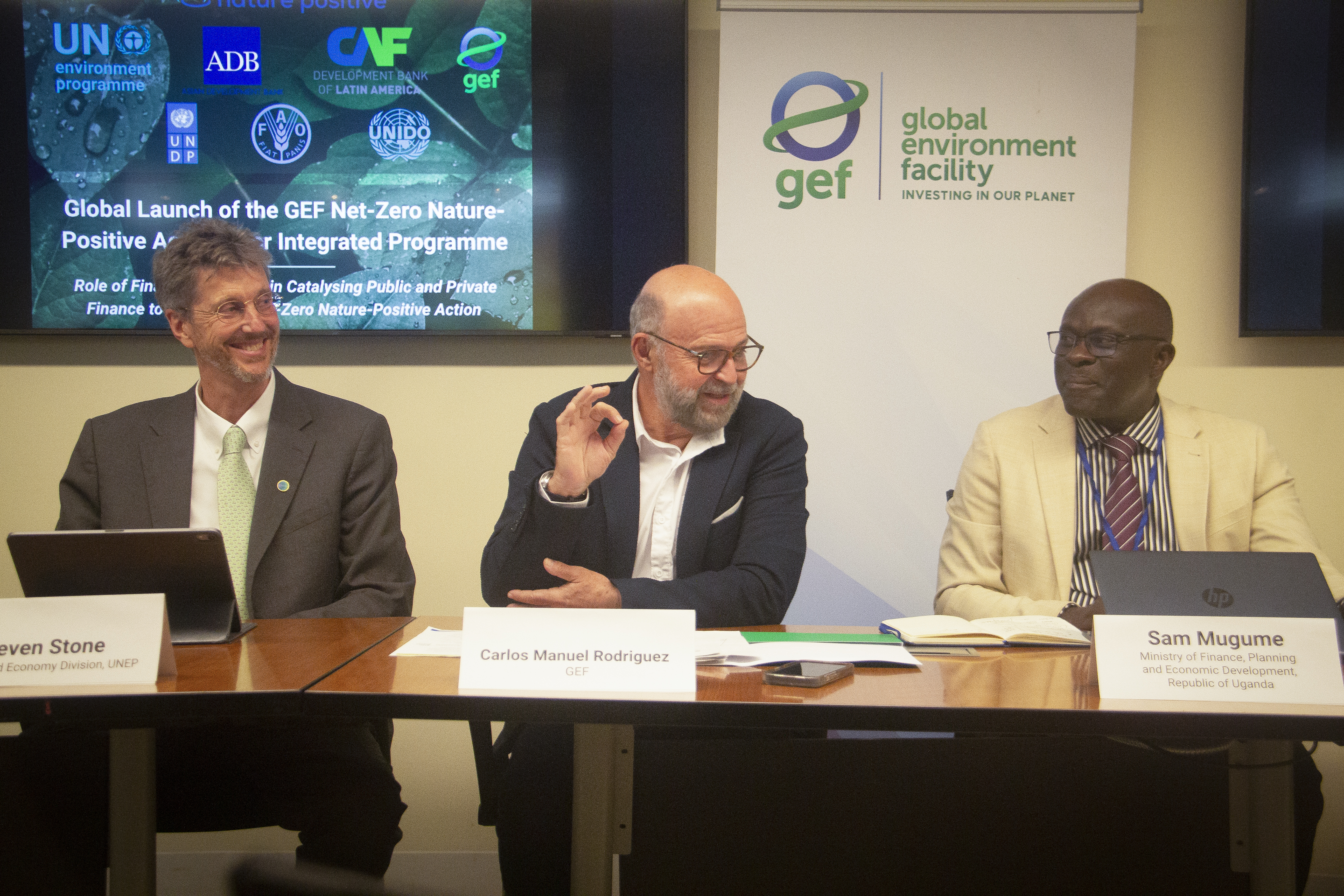When things are going well, we tend to take them for granted - like good health, clean air, or stable and predictable weather patterns.
But take them away, even for an instant, and their true value becomes unavoidable.
Earlier this month, on the margins of the IMF/WB fall meetings, the value of stability came sharply into focus - as the foundation of all wealth, well-being, and future prosperity.
The stability of relationships and institutions. Of trust and partnerships. Of prices and markets. Of supply chains, resource availability, and contracts. All these things, tangible and intangible, are the basis for growth and prosperity.
Yet as economies grow, so too do their environmental and social footprints — and with that, instability is increasing.
Extreme weather events are wiping out years of development gains. Loss of nature and the buffering systems it provides is amplifying shocks - from declining water supply and agricultural productivity to rising flood and drought risks. What we once took for granted is now eroding, and the consequences are showing up on national and household balance sheets.
This message came through powerfully during the recent Ministerial Meeting of the Coalition of Finance Ministers for Climate Action, which now brings together 100 member countries. From Bangladesh, we heard how these shocks are becoming an existential threat. Bhutan, the 100th and the newest country to join the Coalition, described how extreme weather and nature loss endanger the lifeline sectors of their economy: hydroelectric energy, agriculture, and tourism. And how even in advanced economies like Ireland, un-insurability for ordinary homeowners from rising storm losses is becoming a kitchen table issue.
In this context, it was encouraging to see the Coalition deepening its traction around a central theme first articulated by Lord Nicholas Stern: resilience is the new growth and development story.
Because increasing resilience means investing in the systems and capacities required to withstand greater extreme weather and nature shocks - and many of most cost-effective measures come from investing in nature. Wetlands, mangroves, forests, and urban green spaces act as natural buffers – retaining water, cooling cities, protecting coastlines and absorbing the impact of extreme weather events.
UNEP was on the ground at the fall meetings, participating in the Ministerial and also welcoming the Coalition at the launch of a major new initiative to support countries in building resilience - through the Net Zero, Nature Positive Accelerator (NZNPA) Integrated Programme.
Financed by the Global Environment Facility (GEF) and drawing together UNEP, the Asian Development Bank, the Corporation Andino de Fomento (CAF), and many other partners, this USD 100m program will deliver the analytical and knowledge tools needed to mobilize capital at scale for smarter and more resilient investment and development.
The NZNPA reflects a broader evolution in the global finance conversation. As noted in the Coalition’s 2025 Climate Action Statement, finance ministries are increasingly embedding climate and nature risks into fiscal planning, public investment management, and financial regulation — recognizing resilience not as a cost, but as a driver of competitiveness and long-term growth.
From the humble beginnings of the Green Economy Initiative, to the Green Growth Knowledge Partnership (GGKP) and the Partnership for Action on Green Economy (PAGE) and many other initiatives and platforms, UNEP is being called upon to work with the major players in public and private finance to deliver on the investments that will create the conditions for future growth and prosperity: increasing resilience by reducing exposure to external shocks and restoring the natural systems that sustain life and growth.
Because investing in nature is investing in stability. And stability — ecological, social, and financial — is the bedrock of resilience, growth, and prosperity.
It was a beautiful, sunny day in downtown Washington DC on the day of the launch - something not to take for granted but rather a gift to be nurtured and cherished. Much like the environmental guardrails and endowments that underpin the future of our economic health and well-being.
So good to see it being taken seriously by those whose very job it is to manage the public purse and shape the investment field of our economies. Because, to overlook the growing risks would be akin to taking that little slice of sun for granted.

